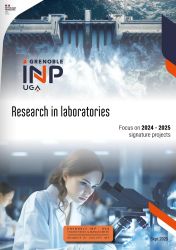Deliverable
A research project is punctuated by milestones marking the achievement of key stages. Milestones can be, for example, the end of a critical review of the state of the art, the finalisation of a concept demonstrator or the approval of an experimental evaluation protocol... The laboratory that has the task of carrying out the research work undertakes to record these advances in deliverables and to provide them to the partner by a defined deadline. The delivery date generally corresponds to the closing date of the research phase and triggers an invoicing milestone.





